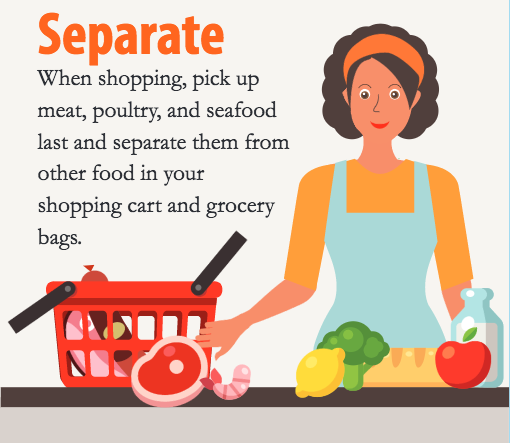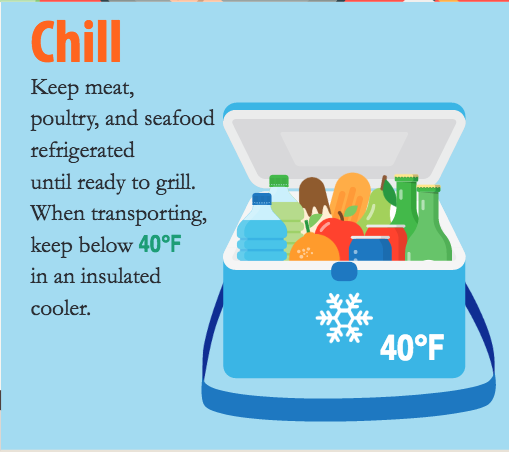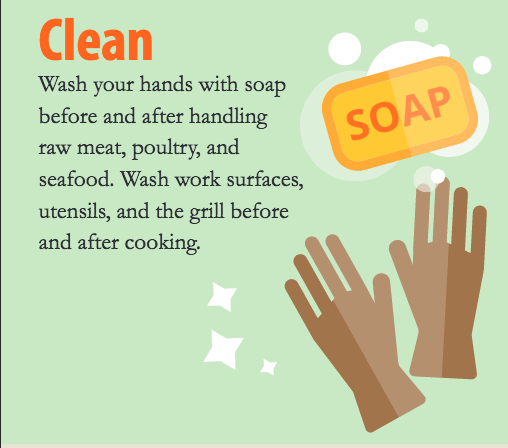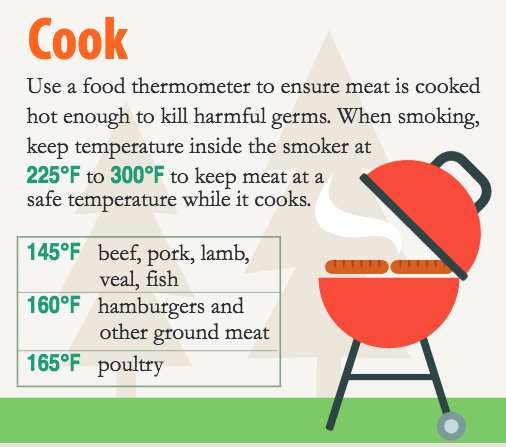Food poisoning peaks in the summertime, when warmer temperature make it easier for bacteria like Salmonella and E. Coli to grow on raw meat and produce. Every year, an estimated 76 million Americans get sick with vomiting or diarrhea from contaminated food.
Here are some health & safety tips to help you and your loved ones avoiding food poisoning this weekend.
Food safety starts in the grocery store. Shop for meat last to keep it cold as long as possible. Put it in a plastic bag to separate meat, poultry, and seafood from other items in your cart and grocery bags.


If you don’t want to taste last season’s hot dogs, here’s a tip: Use an onion to clean your grill. Take half an onion, heat up grill to high, and push the onion back and forth over the grates with a fork. Spray the grates with white vinegar or lemon juice. The acids will help break down the grime and take the residue off a hot grill.
Using natural methods to clean your grill instead of a bristle-brush also avoids the risk of accidentally leaving dangerous wire bristles behind. Eating a broken wire can turn a delicious hamburger into an quick trip to the hospital for emergency surgery.

After you remove the meat from a grill, let it rest. During the rest-time, its temperature remains constant or rises slightly, which destroys harmful bacteria without over-cooking the meat.

In hot weather, refrigeration is just as essential for your beer as your meat. Grilled meat should be refrigerated within two hours of cooking, or one hour if it is above 90ºF outside. Divide the leftovers into smaller portions and refrigerate them in covered, shallow containers.

 Editor’s note: For more information on food poisoning outbreak lawsuits and your legal rights, please contact the nationally recognized food poisoning lawyers at Ron Simon & Associates. Ron Simon’s groundbreaking work on behalf of victims in recent national foodborne illness outbreaks has been featured on NBC, ABC, CBS, CNN, FOX and virtually all other major television networks and print media.
Editor’s note: For more information on food poisoning outbreak lawsuits and your legal rights, please contact the nationally recognized food poisoning lawyers at Ron Simon & Associates. Ron Simon’s groundbreaking work on behalf of victims in recent national foodborne illness outbreaks has been featured on NBC, ABC, CBS, CNN, FOX and virtually all other major television networks and print media.Click Here for a Free Confidential Case Consultation
